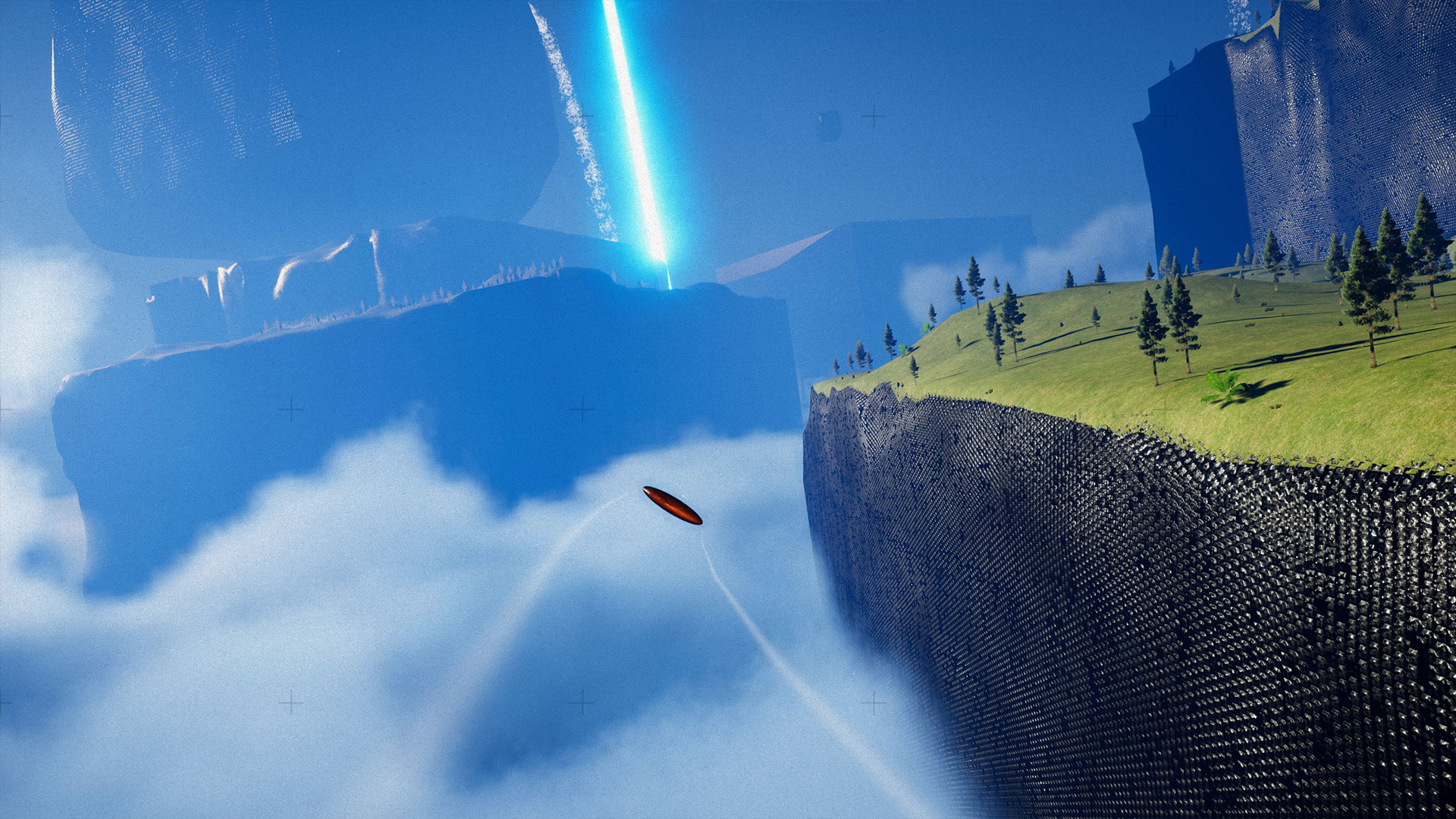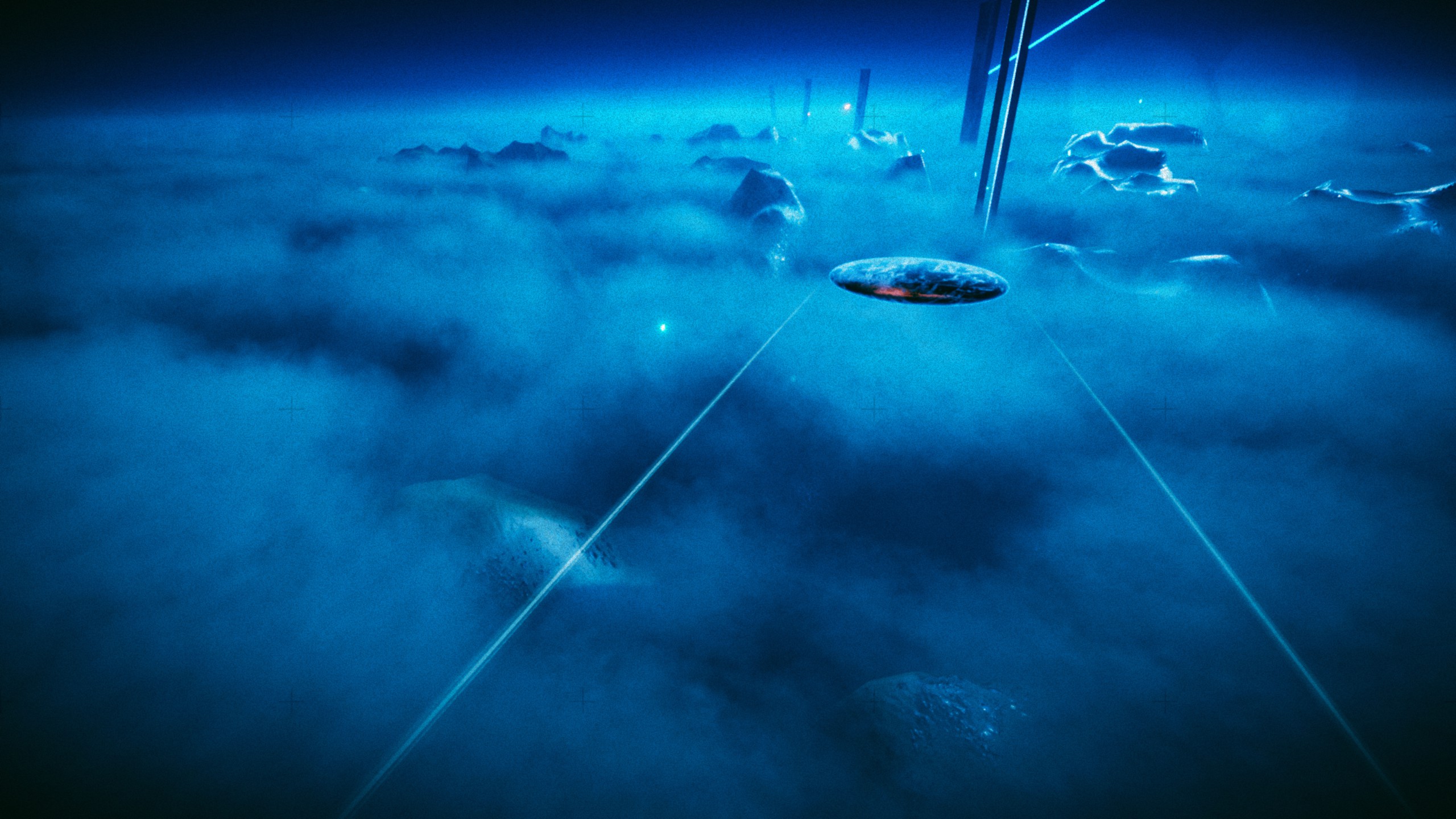Exo One is a thrilling flight through vast interplanetary skateparks
Embrace tranquility, become orb.

From Destiny's Traveller to the clutter-consuming Katamari, video games love a good orb. But never has an orb moved so beautifully, so gracefully, as the alien craft at the center of this gorgeous exoplanetary exploration game. If games are ultimately about orbs, then Exo One might be the most videos game of all.
Exbleative's surreal orb adventure has entered our orbit a few times over the years, with Rachel guiding her orb through the game's first four levels back in January. Last Thursday, the developer opened the hyperspace monoliths to let us punt the obsidian football through the rest of its contemplative universe.
Exo One quickly introduces you to your bizarre ship's control scheme. First you learn to hold the right trigger to increase your mass tenfold, releasing to return to normal. This rhythm helps you get across the first world's rolling hills, first awkwardly, then with speed. You'll start gaining some air, at which point you're introduced to the Exo's other key feature—the ability to squish itself into a disk, maintaining airtime by drifting frisbee-like through the clouds.
Gliding through geographic skateparks is wonderfully satisfying, the same joy offered by mobile flapper Tiny Wings back in 2011. But Exo One's worlds are living, breathing spaces. Harsh winds batter your craft in all directions. Storm clouds buffer you skywards. Impossibly vast rolling seas threaten to drown you, but flattening your craft lets you skim gracefully across them like so many tossed pebbles.
Eventually, you'll be using rolling currents, ancient jumpgates and the atmosphere itself to propel yourself to ludicrous speeds. Figuring out how to break the sound barrier is a terrifying thrill all in itself.
Later levels also play with this toolset in fascinating ways. After getting accustomed to breezing across planets, one level sees you stripped of everything bar that core gravity-switching mechanic. Unable to even steer, you're forced to use only your own weight and the shape of the land to find your way to the next jump-point.
Exo One is rarely (if ever) challenging, but its movement is freeing and joyous, even as the worlds you visit feel ever bleaker. In lieu of more believable alien worlds, Exo One's planets are poetic in their expanse—endless forests and barren obsidian deserts, punctuated by monolithic geometric structures without obvious purpose.
The biggest gaming news, reviews and hardware deals
Keep up to date with the most important stories and the best deals, as picked by the PC Gamer team.

They're dreamscapes in the vein of Connor Sherlock's Far Future Tourism, but with atmospherics and lighting that utterly convinces the eye—shot through enough film grain and camera markings to ground the entire experience as NASA's strangest interstellar odyssey.
There is a story to Exo One, one that follows the sole survivor of a disaster in Jupiter's orbit and the creation of the utterly alien Exo craft. But it's told through hazy flashbacks and garbled recordings, even ditching early plans for a voiced narrator. It paints a vast distance between you and the assumed reality the Exo pilot left behind, but more importantly, grants an emotional weight to these impossibly strange worlds.
Exo One reminds me of my first few hours with No Man's Sky, a vast universe where anything felt possible, long before the limits of that game's procedural planets became clear. Fortunately, Exo One is much too short to wear out its welcome. Besides a few small collectables to grab to increase your glide energy, it's a straight shot from the first hill into the heart of the universe.
If you're feeling a little melancholy and have an hour or two to spare, I can think of far worse ways to spend an evening than heading over to Steam and rolling your way across the cosmos for $15.29/£13.04.

20 years ago, Nat played Jet Set Radio Future for the first time, and she's not stopped thinking about games since. Joining PC Gamer in 2020, she comes from three years of freelance reporting at Rock Paper Shotgun, Waypoint, VG247 and more. Embedded in the European indie scene and a part-time game developer herself, Nat is always looking for a new curiosity to scream about—whether it's the next best indie darling, or simply someone modding a Scotmid into Black Mesa. She also unofficially appears in Apex Legends under the pseudonym Horizon.

